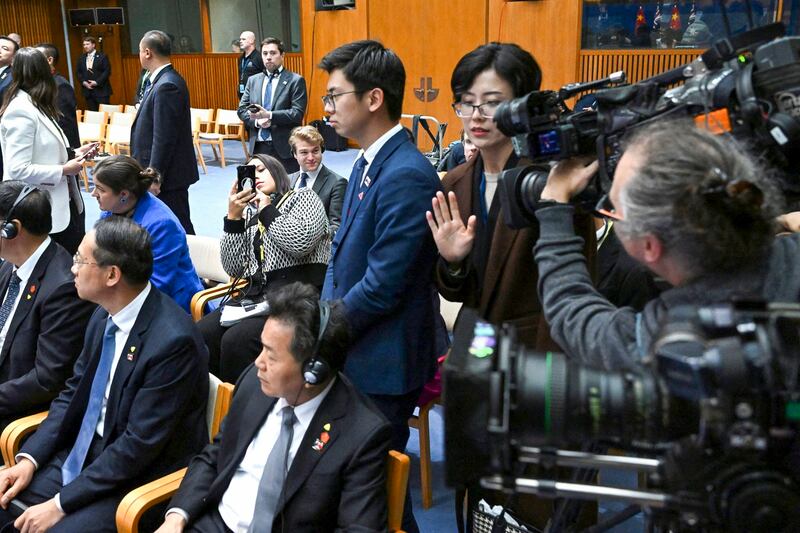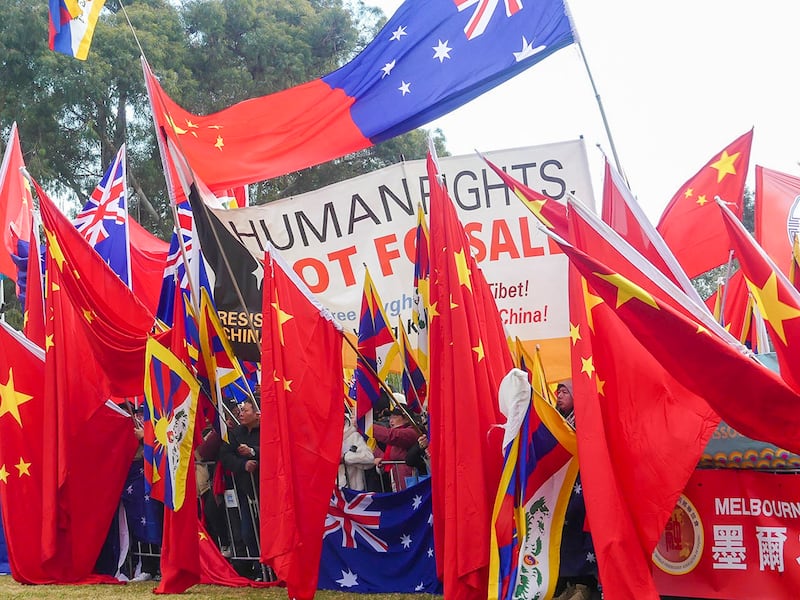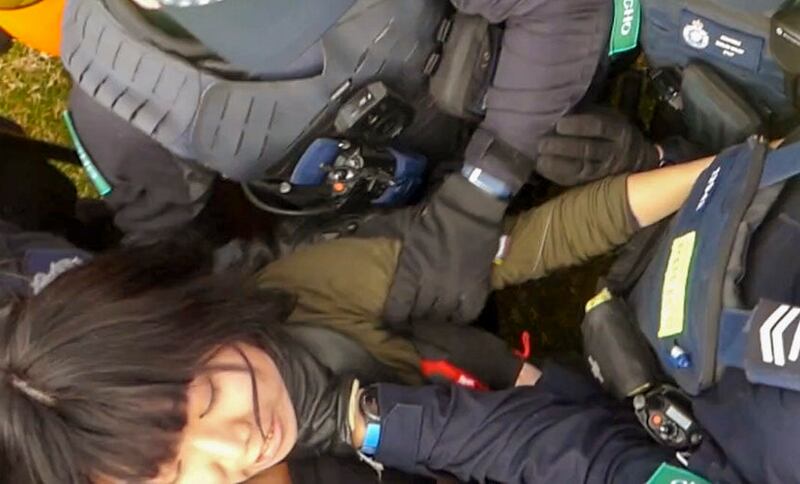The Australian government said Tuesday it has complained to Beijing after Chinese officials tried to block formerly jailed Chinese state TV journalist Cheng Lei from view during a news conference by Premier Li Qiang during his visit to the country.
Two Chinese officials stood next to Cheng, an Australian citizen who formerly worked as a business reporter for China's state-run CGTN. She was jailed in China for nearly three years in 2022 after being accused of "illegally providing state secrets she acquired at work to overseas institutions."
She was deported and reunited with her family in Australia in November after serving the sentence.
Cheng, who now works for Sky News, attended Li's news conference in Canberra on Monday, but Chinese officials appeared keen to ensure she didn't make it into any news footage of the event.
That prompted a complaint from the Australian government, Prime Minister Anthony Albanese told Australian broadcaster ABC on Tuesday.
"Our officials have followed up with the Chinese Embassy to express our concern," Albanese said. "When you look at the footage, it was a pretty clumsy attempt, frankly, by a couple of people to stand in between where the cameras were and where Cheng Lei was sitting."
The footage also shows Cheng switching to a different seat, and an Australian official speaking with one of the Chinese officials.

Two Australian officials then stand next to Cheng in her new seat, preventing Chinese officials from getting close enough to block her out of shot.
"Australian officials intervened, as they should have, to ask the Chinese officials who were there at the press conference to move, and they did so," Albanese said, adding: "When I held my press conference, Cheng Lei got the first question."
Protests outside
Li's visit was also marred by protests outside the Australian Parliament on Monday, where protesters chanted in support of "Hong Kong independence" and against the Chinese Communist Party's territorial claims on democratic Taiwan.
The protests themselves were also disrupted by clashes with supporters of Beijing, who started hitting protesters for tearing down China's national flag as part of their demonstration.

"One member who was shouting loudly was slapped by a Chinese guy, then a group of elderly Chinese started surrounding us and blocking us from view," a Hong Kong protest organizer who gave only the nickname Isaiah told RFA Cantonese on Monday.
"When we opened our umbrellas, some of them pushed back at the umbrellas," he said. "They started it by hitting us, and we acted with reasonable force out of self-defense."
A protester who gave only the nickname Bonnie said the pro-China activists had targeted the women in their group.
"At one point, Chinese patriots targeted our female members and tried to wrap the Chinese flag around our heads and then pull it," she told RFA Mandarin.
Trampled Tibetan flag
Several witnesses reported that Beijing's supporters had also snatched a Tibetan Snow Lion flag and threw it to the ground and trampled on it.
When three Tibetans rushed into the group and tried to take back the flag, the Australian police immediately stepped forward to stop them and pinned one of the Tibetans to the ground, handcuffing him.
Police officers also restrained Australian journalist Vicky Xu by the neck and arms after she questioned their response to clashes between protesters and supporters of Beijing.

The police later confirmed to RFA Mandarin that a man had been arrested outside the Parliament on Monday on suspicion of "breach of the peace," a generic public order offense, and ordered not to go back there.
There was no response from the Chinese Embassy to requests for comment.
Life in prison
In his meeting with Li Qiang, Albanese also raised the case of Australian writer Yang Hengjun, who was handed a suspended death sentence for espionage by the Beijing No. 2 Intermediate People's Court in February.
According to the verdict, the court found Yang guilty of providing intelligence to Taiwan’s intelligence agency while working in Hong Kong in 1994, sentencing him to death, convertible to life imprisonment after two years, and depriving him of all his personal property.
Albanese has presided over a period of relative detente with Beijing since he took office in 2022, but analysts said Canberra is now much more cautious about how it manages ties with Beijing.
Li told the news conference that Beijing wants to build a "more mature, stable, and fruitful comprehensive strategic partnership" with Canberra, while Albanese said there had been progress on "military to military communication so as to avoid incidents."
The two leaders also agreed that China will add Australia to its visa waiver programme to promote bilateral trade and tourism.
Translated by Luisetta Mudie. Edited by Malcolm Foster.
